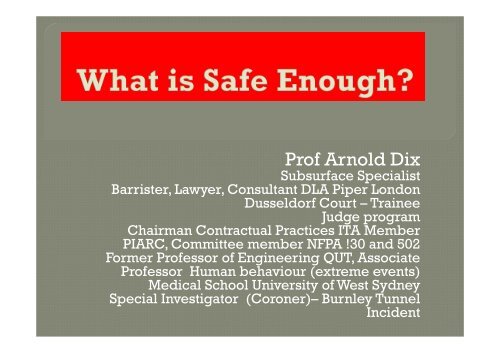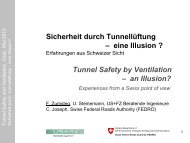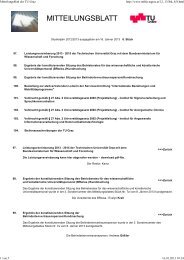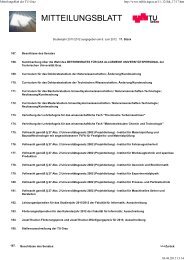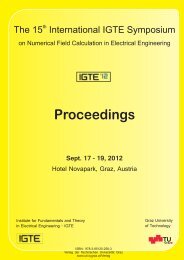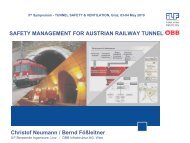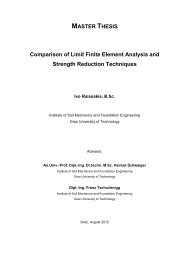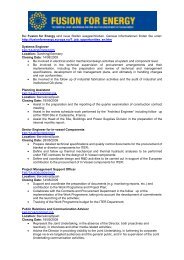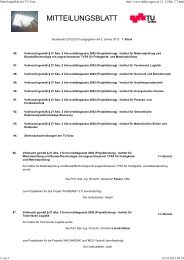Prof Arnold Dix
Prof Arnold Dix
Prof Arnold Dix
You also want an ePaper? Increase the reach of your titles
YUMPU automatically turns print PDFs into web optimized ePapers that Google loves.
<strong>Prof</strong> <strong>Arnold</strong> <strong>Dix</strong><br />
Subsurface Specialist<br />
Barrister, Lawyer, Consultant DLA Piper London<br />
Dusseldorf Court – Trainee<br />
Judge program<br />
Chairman Contractual Practices ITA Member<br />
PIARC, Committee member NFPA !30 and 502<br />
Former <strong>Prof</strong>essor of Engineering QUT, Associate<br />
<strong>Prof</strong>essor Human behaviour (extreme events)<br />
Medical School University of West Sydney<br />
Special Investigator (Coroner)– Burnley Tunnel<br />
Incident
Convergence of Legal<br />
and Technical thinking
If engineering based<br />
decision is questioned - by a<br />
court –<br />
Court considers<br />
“reasonableness” of decision
60 years ago
1949<br />
"Reasonably practicable” is a narrower<br />
term than ‘Physically possible’ and implies that a<br />
computation must be made... in which the<br />
quantum of risk is placed in one scale and the<br />
sacrifice involved in the measures necessary for<br />
averting the risk (whether in time, trouble or<br />
money) is placed in the other and that, if it be<br />
shown that there is a great disproportion<br />
between them – the risk being insignificant in<br />
relation to the sacrifice – the person upon whom<br />
the obligation is imposed discharges the onus<br />
which is upon him."
a computation must be<br />
made... in which the quantum<br />
of risk is placed in one scale<br />
and the sacrifice involved in<br />
the measures necessary for<br />
averting the risk (whether in<br />
time, trouble or money) is<br />
placed in the other
and that, if it be shown that<br />
there is a great disproportion<br />
between them [the sacrifice<br />
and the benefit] – the risk<br />
being insignificant in relation<br />
to the sacrifice
– the person upon whom the<br />
obligation is imposed<br />
discharges the onus which is<br />
upon him."
An EU Directive gives<br />
employers an absolute duty<br />
"to ensure the safety and<br />
health of workers in every<br />
aspect related to the work",<br />
whereas<br />
A UK Act qualifies the duty<br />
"So Far As is Reasonably<br />
Practicable".
The European Commission<br />
claimed that the “reasonably<br />
practical” wording in the Uks<br />
Health & Safety at Work Act<br />
did not implement the<br />
requirements of the<br />
Framework Directive.
A 2-year legal battle in the<br />
European Court of Justice<br />
resulted in the “reasonable”<br />
principle being upheld on 18<br />
January 2007.
The court dismissed the<br />
action and ordered the<br />
Commission to pay the UK's<br />
costs. [2][3]
Even “absolute” directions<br />
– eg “the tunnel MUST be<br />
safe”<br />
will – in Europe – have the<br />
“reasonably practical”<br />
concept imputed into the<br />
requirement. (but interpreted<br />
in accordance with local<br />
culture)


